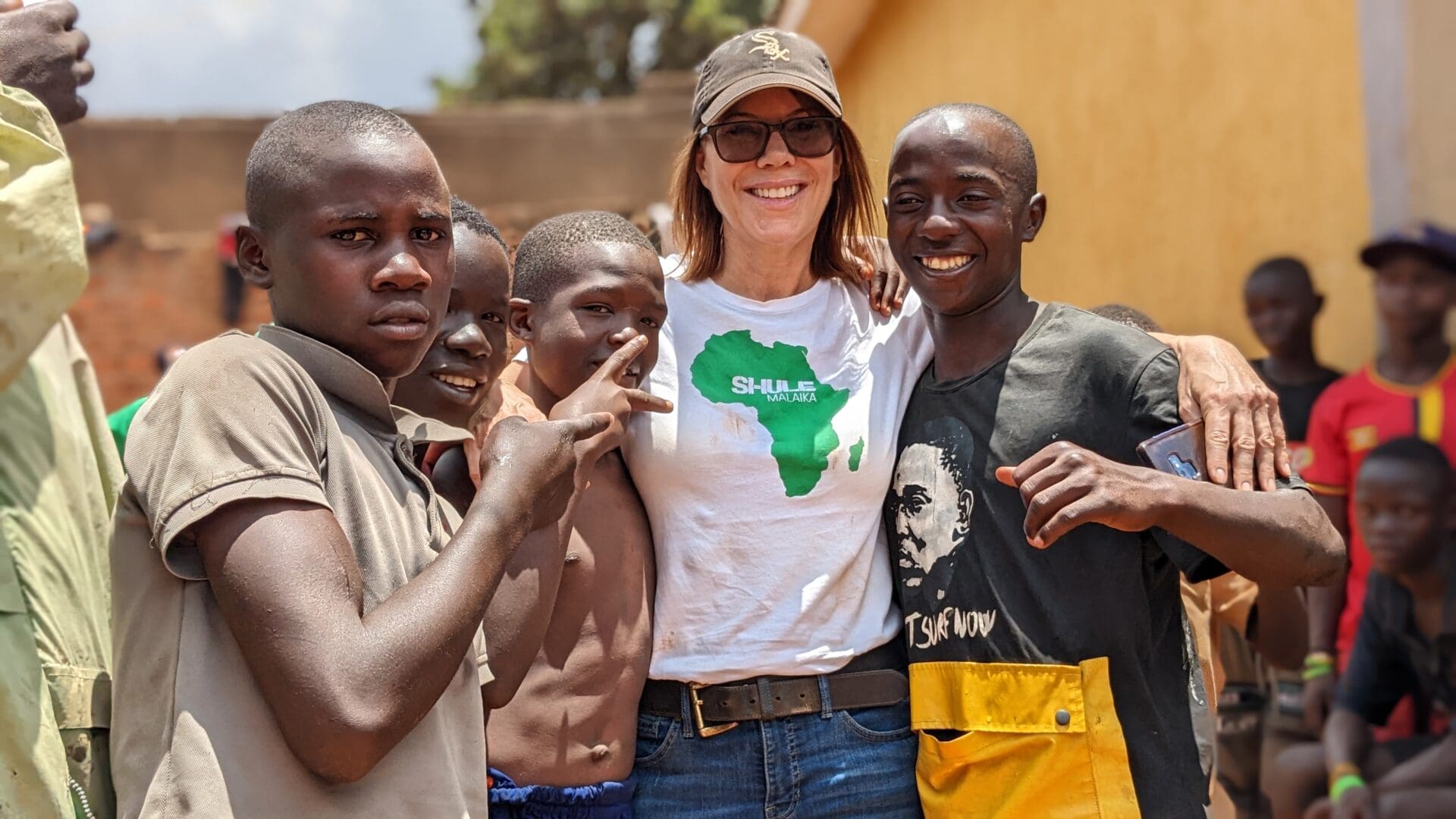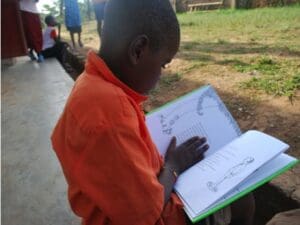
Greetings from Auntie Jackie
This journey all started with a Ugandan child named Alex.
While volunteering at an orphanage in Iganga, Uganda, in 2008, Alex, a too timid seven-year-old, caught my attention immediately. Looking as if he had just stepped out of a Ralph Lauren ad, this young boy did not necessarily reflect the image of a quintessential African child.
 Alex and I became fast friends. Having noticed that I brought books, he asked me what my favorite book was." It is "The Giving Tree," and I even got it with me," I replied. Within minutes, Alex was back at my side, book in hand, and we settled on the grass as he began reading. He rendered me speechless as he never once hesitated on a word or looked to me for help with pronunciation. Alex rarely put that book down over the following six weeks.
Alex and I became fast friends. Having noticed that I brought books, he asked me what my favorite book was." It is "The Giving Tree," and I even got it with me," I replied. Within minutes, Alex was back at my side, book in hand, and we settled on the grass as he began reading. He rendered me speechless as he never once hesitated on a word or looked to me for help with pronunciation. Alex rarely put that book down over the following six weeks.
Remarkably bright and incredibly kind, I remember thinking that this young boy could grow up to do tremendous things. I believed, and still do, that he could become president one day if he wanted.
Alex's mom struggled financially. Like many parents, she would make the ultimate sacrifice and leave her son in the care of strangers who could better provide for him. He attended good schools, got high marks, and learned to play chess. Alex thrived and was one of the lucky ones.
I've reconnected with Alex. He currently attends University in Ghana. He aspires to become an international lawyer, which I know he will achieve if that is what he wants.
Throughout the years, I have met many exceptional boys like Alex, which always leads me to question, "What happens to the children who aren't as fortunate?" Motivated to make a significant impact in the lives of underprivileged children, I established the Shule Foundation in 2014 with the aspiration of constructing schools that provide high-quality education to those unable to afford it. However, an unexpected encounter with another highly talented boy would soon redefine our mission and broaden our perspective.

In 2016, I encountered Ashraf, a 12-year-old boy who had left home at the age of five. For the following seven years, Ashraf dwelled on the streets of a major slum in Kampala. He developed a detrimental addiction to sniffing mafuta (a combination of jet fuel and industrial glue), spending his days in a high state while scavenging for food and collecting plastic bottles and scrap metal to earn meager amounts of money to sustain his petrol habit.
Like Alex, Ashraf is very bright. Although he attended school for only two years, he reads and thinks like a child who has been in school all his life.
Ashraf opened my eyes to the harsh realities of life on the streets for these boys. But it wasn't until he escaped from one of Uganda's most notorious children's prisons and called me in tears, pleading for help, that I realized the urgent need to expand our mission. His desperate cry for safety and a chance at a better life compelled me to shift my focus toward helping street-connected boys find hope and a path forward.
Having spent most of my professional career making the impossible possible, I now use my talents to take on the most challenging challenges. My Ugandan colleagues and I have committed to making the (seemingly) impossible possible for thousands of street-connected boys living in Uganda…access to quality education, skills training, and job opportunities.
My dream now is to ensure that every boy on the streets has the opportunity to break free from the chains of poverty and injustice. These boys deserve more than the harsh hand they've been dealt. They deserve a childhood, love, guidance, and the opportunity to go to school so they can one day become responsible, self-sufficient men who can care for themselves and their families."
The urgency is real, and the need is great. Please consider joining me. Together, we can improve their lives and change their futures. Let's not leave these boys behind.
Asante Sana,

